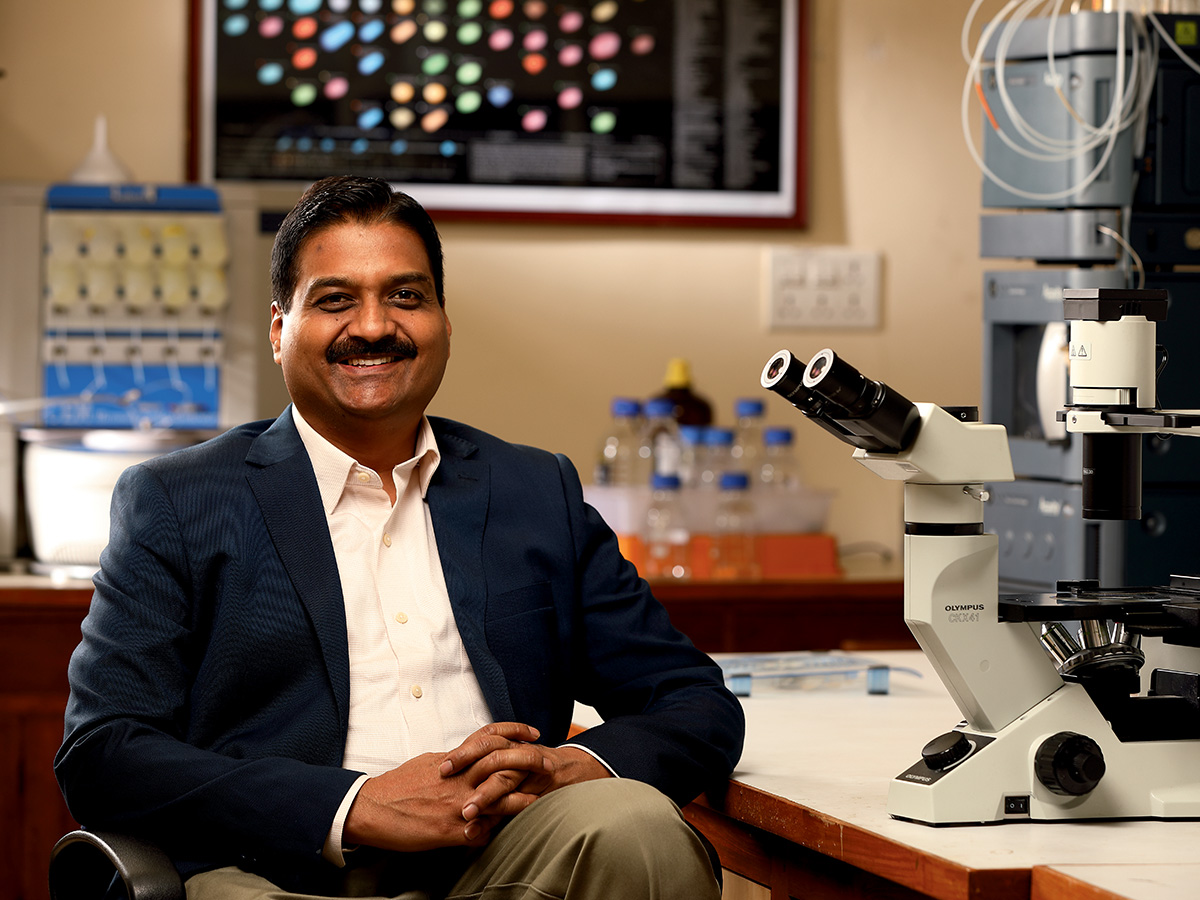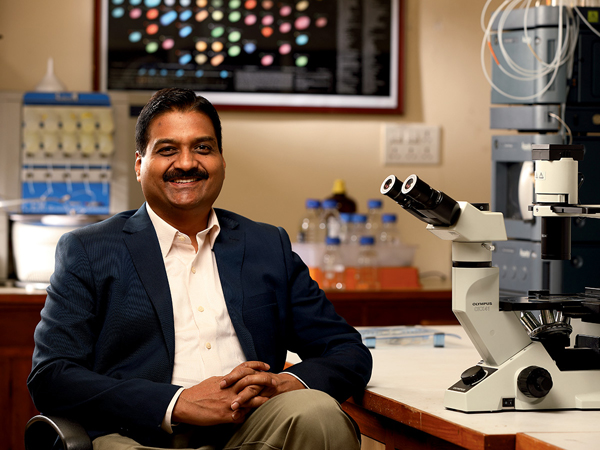The Infosys Prize 2019 in Physical Sciences is awarded to Prof. G. Mugesh for his seminal work in the chemical synthesis of small molecules and nanomaterials for biomedical applications. His work has contributed to the understanding of the role of trace elements, selenium and iodine, in thyroid hormone activation and metabolism, and this research has led to major medical advances.
Infographic:
The Sparks That Fire Life
Scope and Impact of Work
Prof. G. Mugesh is an internationally renowned chemical biologist whose work ranges from the fundamental chemical synthesis and understanding of biochemical mechanisms at the molecular level to practical medical applications. He has made pioneering contributions in the areas of Biomimetic Redox Modulators, Thyroid Hormone Metabolism, and Nanomaterials. Prof. Mugesh’s broad research encompasses artificial enzymes including nanozymes in cellular redox signaling. His work on the design and synthesis of small molecules that functionally mimic the selenoenzymes in mammalian cells has received worldwide attention.
Prof. Mugesh has made seminal contributions to our understanding of the role of trace elements, such as selenium and iodine, in human health. His group has pioneered the idea of using artificial enzymes (those not present in nature, but which can be synthesized to act as catalysts for biologically important reactions) to modulate cellular processes under oxidative stress conditions.
Recent research in Mugesh’s laboratory is aimed at the use of halogen bonding as a strategy to efficiently deliver proteins and synthetic small molecules into human cells across the plasma membrane. Cellular delivery of proteins and small molecules is a major challenge in drug discovery and biomedical research and Prof. Mugesh’s strategy to use the halogen bond-mediated cellular uptake paves the way for the efficient delivery of therapeutic proteins and small molecule drugs into human cells.
Bio
Prof. G. Mugesh is a professor in the Department of Inorganic and Physical Chemistry at the Indian Institute of Science, Bengaluru. He obtained his B.Sc. from the University of Madras, M.Sc. from the Bharathidasan University, and Ph.D. from the Indian Institute of Technology, Bombay.
Prof. Mugesh was a Humboldt Fellow (Institute of Inorganic and Analytical Chemistry, Technical University, Braunschweig, Germany) a Visiting Fellow (Institute of Biochemistry and Molecular Biology, Heinrich-Heine University, Düsseldorf, Germany); and a Skaggs Postdoctoral Fellow (Skaggs Institute for Chemical Biology, The Scripps Research Institute, La Jolla, California) before taking up his current post in Bengaluru.
Mugesh’s many recognitions include the Shanti Swarup Bhatnagar Prize (2012) and fellowships in three Indian National Academies as well as the UK’s Royal Society of Chemistry (2013). He has delivered numerous named lectures and has served on the editorial boards of many Indian and international journals.
Timeline
Jury Citation
Prof. Mugesh, a chemical biologist, has made pioneering contributions to Biomimetic Redox Modulators, Thyroid Hormone Metabolism, and Nanomaterials. He has made seminal contributions to the understanding of the importance of trace elements, such as selenium and iodine, in thyroid hormone activation and metabolism. His work on artificial enzymes (biological catalysts not present in nature but synthesized) including nanozymes that modulate the cellular redox signaling attracted worldwide attention.
Prof. Mugesh’s work ranges from the fundamental chemical synthesis and mechanisms of understanding at the molecular level to practical medical applications. The recent discovery from his laboratory that proteins and synthetic small molecules can be delivered into human cells across the plasma membrane by utilizing halogen bonding has direct applications to human health. This novel strategy can be used for the efficient delivery of proteins and small molecules for therapeutic applications.
“Congratulations Dr. Mugesh on being awarded the 2019 Infosys Prize in Physical Sciences. Your work is fundamental and also has practical applications. With your command of chemistry, you're able to synthesize chemicals such as enzymes for biological use. At the same time, you also have developed a clever technique to transport these chemicals efficiently to specific sites. The application for activating thyroid is of considerable value as an instance. Congratulations again Dr. Mugesh.”




